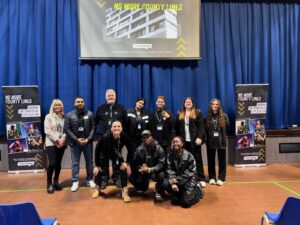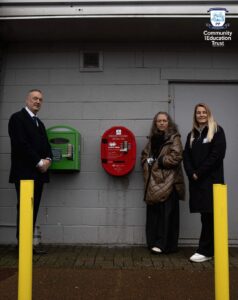Lancashire Violence Reduction Network launches Mia’s Story – a children’s picture book which aims to help youngsters to cope when a parent goes to prison.
‘Mia’ was just eight years old when her father was sent to prison. In the story she speaks bravely and honestly about her experiences, hoping that her story can help other children in a similar position.
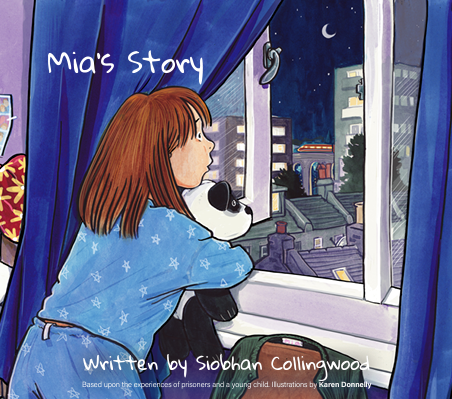
The book was written after collecting responses from prisoners in Lancashire and Cumbria who had been asked what they thought their families needed to know about their experience in prison and their preparations to come home. Their words were shown to ‘Mia’, who then shared her own experience.
Being separated from a parent who is in prison is recognised as one of the most damaging childhood experiences. Shame, sadness, fear, stigma, loneliness, guilt, confusion, anger, loss, and sometimes relief, are just some of the feelings that children may experience, known as disenfranchised grief.
Communities are often unaware of what’s happened or don’t know what to say, what to ask, or what not to ask, leaving children and their family coping with the void of the person who has gone and the additional pressures that brings.
With good support it is possible to greatly reduce the effects of having a parent imprisoned.
‘Mia’, and other children with a parent in prison, need families, teachers, support workers, and communities to:
- Talk honestly and sensitively about what has happened as much as possible
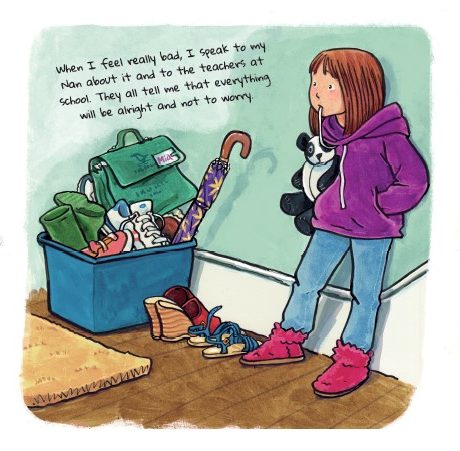
- Support children in maintaining a relationship with their parent wherever possible
- Arrange for children to visit their parent in prison to help dispel any negative or sensationalised images of prison life
- Support children through any unkind comments, gossip, or feelings of shame or embarrassment they may experience
- Support children and their family as they prepare to reintegrate when the imprisoned parent comes home
- Be kind.
The book is for sharing between parents, carers, support staff and children, and prisoners and support staff to spark discussion and help children to understand that they are not alone.
‘Mia’ spoke about the book and how she hopes her story will help others:
“I feel really proud and happy about my book. When I think back to how upset I was at the time, I can see how much better things have got for me.
“I’m so happy that by sharing my feelings from back then, I have been able to help others who are going through the same thing.
“Knowing that people in prison will be able to talk about how they feel about their family means a lot to me. I hope our book is used by a lot of people and helps families to stay in touch so that they can understand what life is like for each other.
“Even though my Dad was away from me in prison, I never stopped loving him. If I could speak to other children going through this right now, I would tell them to have hope, there are people who can help and they deserve to have a life as good as it can be.”
Siobhan Collingwood, education lead at Lancashire Violence Reduction Network, said:
“In Lancashire there are 3.5 times more children directly affected by parental incarceration than there are children in care.
“I have seen how what’s happening at home affects a child’s wellbeing, their behaviour, and their future adult life. When a parent goes into prison, services need to work harder to support family relationships where possible to help children go through the trauma of being separated and come out at the other end as well-adjusted as possible.”
Det Ch Supt Sue Clarke, head of Lancashire Violence Reduction Network said: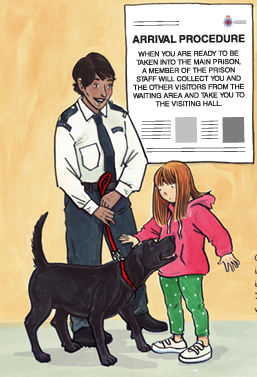
“This is a group of children that are completely unsighted by the education and criminal justice system.
“At Lancashire Violence Reduction Network, we are working to encourage more support within schools and also within prisons. This must be at a specialist level in order to provide an effective and ongoing programme of support which protects children through the whole experience from the parent going to prison, to visiting prison, planning for release and after release.”
Andrew Snowden, Lancashire’s Police and Crime Commissioner said:
“Ensuring that young people whose parents go through the criminal justice system get support is really important – the children of offenders are in many ways secondary victims themselves and projects like this, with ‘Mia’ bravely telling her story, will help anyone dealing with something similar.
“The Lancashire Violence Reduction Network and similar organisations across the country, have again been funded this year by Government to help tackle crime, support young people and back our police with the resources they need to make communities safer.
“The impact that crime has on innocent people makes me as committed as ever to break the cycle of offending and particularly reoffending, in the county and lead the fight against crime here in Lancashire.”
Copies of Mia’s Story are available within primary schools across Lancashire.


